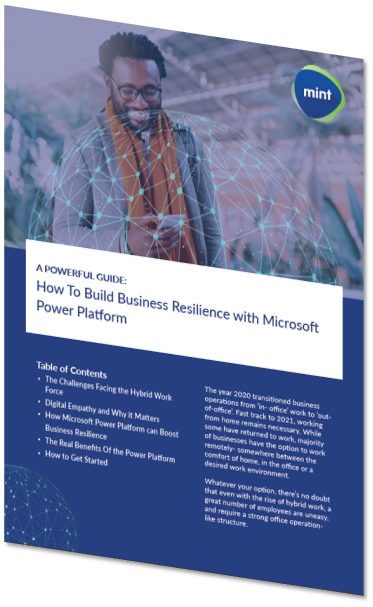As we go about our daily lives, doing our everyday activities, most of us rarely stop to sense the presence of the law that govern these everyday behaviors. We are largely oblivious to the fact that the law has shaped our behaviors in such a manner that we adhere to it without giving it too much thought.
We attend to pay our accounts when it becomes due. We register our vehicles, (hopefully) stop at red traffic lights, and drive on the correct side of the road. These actions are all undertaken because it is considered prudent. Few of us stop to consider what judgments and procedures we have defined by taking part in these almost routine actions.
Nevertheless, these and other laws have a daily impact on our lives whether it relates to education, housing, nutrition, consumer rights, labor laws, or even the environment. On the other hand, public policies such as legislation, resolutions, new regulations for current law, or court decisions are used as solutions to problems. These laws and legal policies all serve as solutions to the public and private issues that have been debated and compromised through the policy and law-making process.
We tend to take these laws and policies for granted as long as it keeps society running smoothly. On the other hand, we tend to become more involved when a law or policy has a perceived negative impact.
The assumption and long-standing status quo that regulations can be crafted and then remain constant and largely unchanged, for prolonged periods of time, has effectively been challenged and uprooted by the pandemic. Governments alike were forced to create and modify regulations, hastily communicate, and then enforce them at a pace that is simply unprecedented.
The pandemic has fast-tracked technology trends such as digital payments, telehealth, and robotics. Some of these trends helped reduce the spread of the virus enabling businesses to continue trading, whilst others provided society with a mechanism to remain resilient.
In this blog and my next one, I will discuss some of the innovations that have gained new favor during the pandemic and the impact thereof on our everyday lives.
Online Shopping
During the lockdown period, the perception of online shopping has been forever changed from a “nice to have” to a “must-have”. We were now placed in a position where we had to consider other alternatives. This perception necessitated improvements in the logistical systems of delivery companies, and especially restaurants. In some countries such as China, this even caused a surge in the development of robot delivery systems to safeguard the sanitation of delivered goods and services.
Digital and Contactless Payment
Digital and contactless payments became the norm during the pandemic and is this still the recommended method. Not only does this method limit the spread of the virus, but it also enhanced our effectiveness as a society by limiting queuing, as well as receiving funds in a faster manner.
This however also highlighted that there is a need for a policy to accommodate a large number of people who do not have such easy access to digital payments as it relies on factors such as being able to afford devices, the availability of the internet, as well as a network to convert cash.
Distance Learning Education Systems
During the pandemic, parents were placed in a position where they had to evaluate distance learning as a viable option. Traditional universities and schools had to implement online courses to mitigate the disruptions caused by quarantine measures and had to utilize the technology available to facilitate this new action plan.
This placed added pressure upon parents, children, and institutions as they not only had to adjust to a more unfamiliar forum of teaching but also had to struggle to maintain a work-life balance.
But after this initial period of adjustment, many have realized that distance learning is now a viable option and is an effective solution for the flexibility that some households require.
It is however evident that the increased use of these online forums will require the revision of policies to address not only the protection of data and information being exchanged but also to provide guidelines as to available contact hours and online etiquette.
Working from Home/Hybrid Work
As a result of the State of Disaster Regulations, people were actively encouraged to work from home, and companies were requested to facilitate this process as much as possible. To do so, technologies such as virtual private networks (VPNs), voice over internet protocols (VoIP), virtual meetings, cloud technology, and work collaboration tools had to be utilized, and did this create a surge in opportunities for the information communication technology industry. This change also made more companies realize that in addition to preventing the spread of the virus, remote work also saves commute time and provides more flexibility, and allows the companies to limit their overhead costs.
Working remotely or in a hybrid system nevertheless also emphasized and even created certain challenges for employers and employees. These challenges include Information security, privacy issues as well as timely technological support. Employers and employees alike now had to struggle to find and maintain a proper work-life balance, manage social anxiety such as feelings of loneliness experienced, and to some extent, even income tax and labor law issues.
Whilst the pandemic has made working remotely or in a hybrid system a more viable option, it is clear that the laws and policies need to be updated to accommodate remote work, and will further studies need to be conducted to understand its psychological effects.
It is however also evident that not all occupations such as medical services and manufacturing lend themselves to working remotely.
Make sure to read my next blog where I discuss another 4 pandemic-fuelled innovations.
Read more on technologies that can make your life easier whilst working remotely.
Create Your Tomorrow through Empathic Leadership Powered by Intelligent & Smart Technologies.
Get this [Free Guide] to adopting Business Apps to How To Build Business Resilience with Microsoft
In this Free Product Guide, you will receive:
- The Challenges Facing the Hybrid Work Force
- Digital Empathy and Why it Matters
- How Microsoft Power Platform can Boost Business Resilience
- The Real Benefits Of the Power Platform
- How to Get Started






